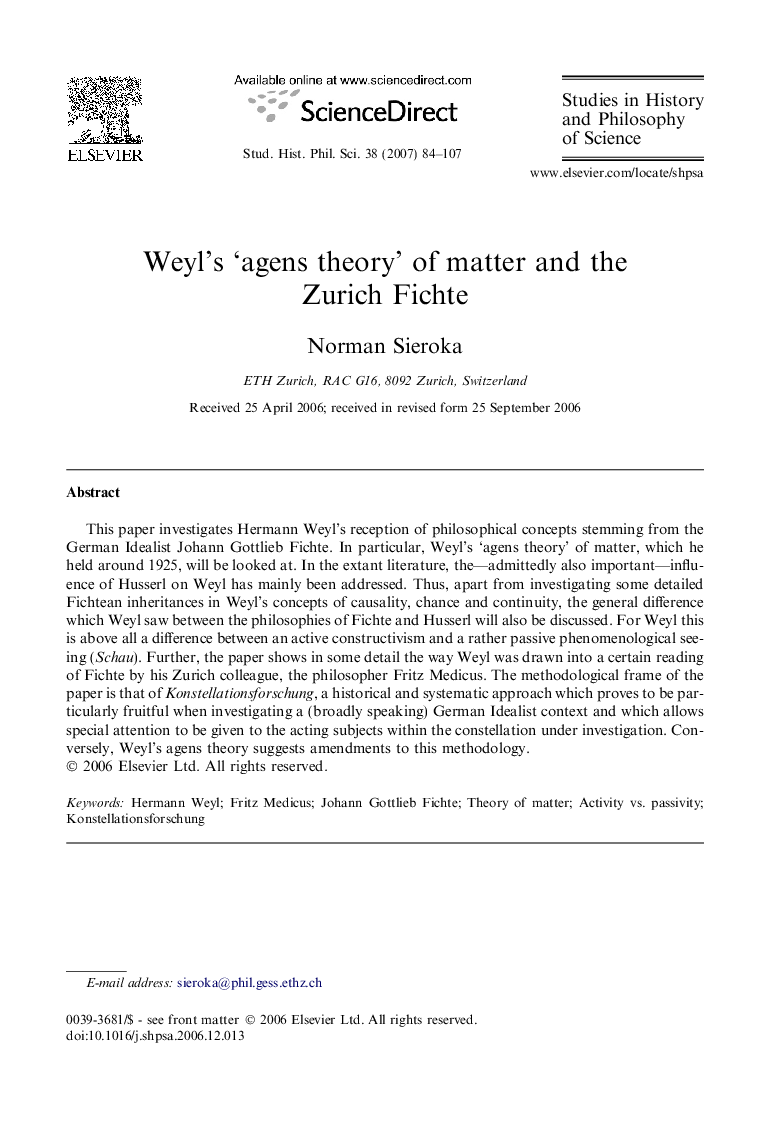| Article ID | Journal | Published Year | Pages | File Type |
|---|---|---|---|---|
| 1160774 | Studies in History and Philosophy of Science Part A | 2007 | 24 Pages |
Abstract
This paper investigates Hermann Weyl's reception of philosophical concepts stemming from the German Idealist Johann Gottlieb Fichte. In particular, Weyl's 'agens theory' of matter, which he held around 1925, will be looked at. In the extant literature, the-admittedly also important-influence of Husserl on Weyl has mainly been addressed. Thus, apart from investigating some detailed Fichtean inheritances in Weyl's concepts of causality, chance and continuity, the general difference which Weyl saw between the philosophies of Fichte and Husserl will also be discussed. For Weyl this is above all a difference between an active constructivism and a rather passive phenomenological seeing (Schau). Further, the paper shows in some detail the way Weyl was drawn into a certain reading of Fichte by his Zurich colleague, the philosopher Fritz Medicus. The methodological frame of the paper is that of Konstellationsforschung, a historical and systematic approach which proves to be particularly fruitful when investigating a (broadly speaking) German Idealist context and which allows special attention to be given to the acting subjects within the constellation under investigation. Conversely, Weyl's agens theory suggests amendments to this methodology.
Keywords
Related Topics
Social Sciences and Humanities
Arts and Humanities
History
Authors
Norman Sieroka,
